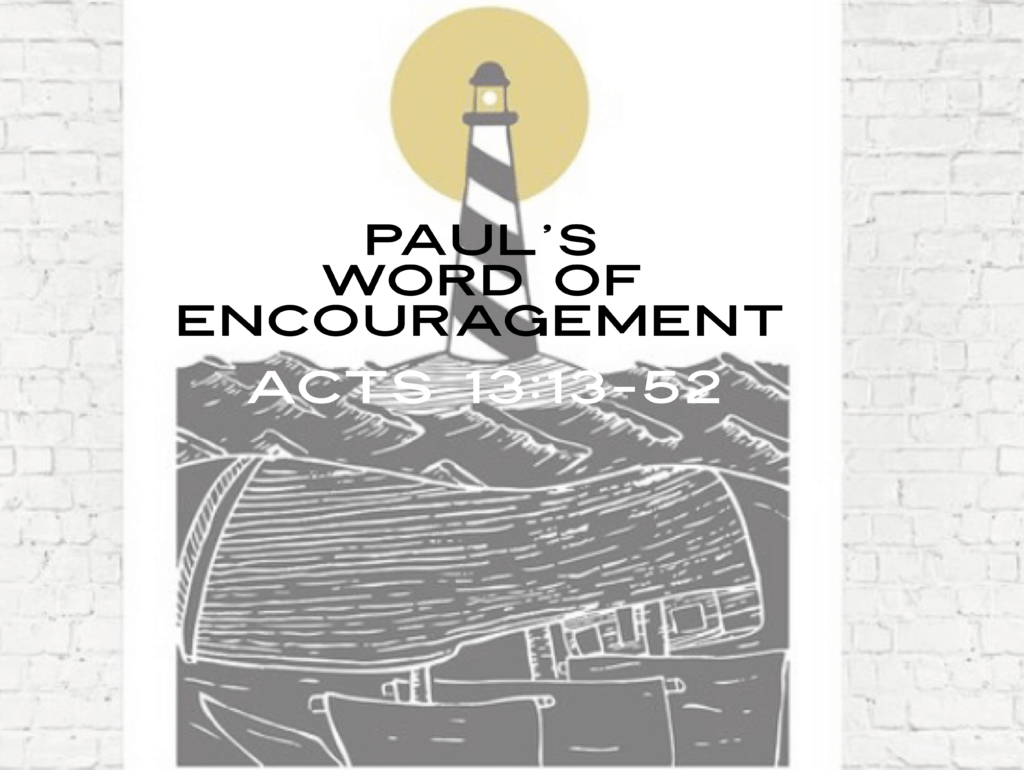Read Acts 11:1-18
Have you ever had to state your case for something? If you’re a sinner you know you have. Maybe you were a child and your parent came into the room at the worst possible moment, used your first and middle name, followed with the phrase, “What do you have to say for yourself?” Perhaps you were not always obedient to the various traffic laws of the land and a specific individual with blue lights and sunglasses is suddenly asking you if you know why you were pulled over. Or maybe you were just being a goofball and your friend looks at you and says, “what is wrong with you?” It’s pretty rare that the person asking the question changes their stance in these occasions. The one being asked these questions will usually be grounded, given a ticket, or regarded as weird for the rest of our lives. However, in Acts 11:1-18, we see a case where the accused pleads his case to his accusers and the accusers completely change their stance.
This past Sunday, Kevin preached from Acts 10 about Peter’s interaction with Cornelius and the members of his household. Peter preached the gospel to this group of Gentiles and all of them were saved. As the news of the Gentiles being saved spread throughout the area, it began to ruffle the feathers of many people within the Jewish community. Before moving forward, it is helpful to understand a little bit of the background behind this controversy. First there are political issues surrounding this controversy. The Jewish people, at this time, were living in a culture that was being ruled by non-Jewish authorities. While they could still embrace their own culture, they were occasionally mistreated or withheld certain rights that the Gentiles possessed. We read how the Jews confronted Peter in Verse 3, “You went to uncircumcised men and ate with them.” This was an intense accusation. In their mind, Peter crossed racial and party lines. Not only did he do that, he shared a meal with them. Sharing a meal in this context was not simply an act of kindness or a chance to have a conversation. It was a means of identification. So when these Jews confronted Peter, they were basically saying, “not only did you turn your back on our traditions and the fact that these people are oppressing us, but you identified yourself as one of them.”
The politics of the time and the traditions of the Jews were confronted by the reception of the gospel by the Gentiles. Shouldn’t this be the expectation when the gospel enters any culture? We serve a God who transcends all time, places, and cultures, yet, he reveals Himself to us where we are. If we do not have a God who steps on the toes of our politics, traditions, or culture in some way, then are we really worshiping the God of the Bible? No, if God never confronts us the most likely explanation is not that we are worshiping God rightly, but that we are worshiping ourselves.
Secondly, there are also theological issues surrounding this controversy. How can there be a theological issue when God saves people? Put yourself in the mind of a first century Jew for a moment. God chose Israel. Israel was considered to be the people of God. Suddenly God is welcoming the Gentiles into His presence as His people. Is God changing His mind now? Is God turning His back on the promises He had previously made? Absolutely not. All of Scripture paints a picture for us that we serve a God who is at work in this world establishing a people for Himself. God’s choosing of Israel to be a people for himself was the starting point. It was through this people that God’s plan for all people was manifested. However, by failing to realize what God was doing in the world, the Jews were trying to hold back His glory for themselves alone. This selfishness reduced Him to a tribal deity rather than a Global Deity.
This truth of God’s global intention is what the Jews had to understand. Getting to that point of understanding was a process due to the fact that this truth was an attack on their personal identity. The Jewish people were used to the grace of God. Due to the fact that they were used to God’s grace, they began to feel entitled to it because of their religion and traditions. Their security rested more in who they were rather than in who God is. Any ounce of entitlement to the grace of God is a complete dependency upon self-righteousness which leads to a total abandonment of the gospel. The reason the Jews were appalled at the salvation of the Gentiles is because of the self-righteousness that dwelt within them. This mindset can be seen in our culture as well. Have you ever felt entitled to God’s blessings because of the life you’ve lived (or haven’t lived) and the decisions you’ve made (or haven’t made)? Have you ever been filled with an envious rage when you see God blessing others in a way that makes you feel like He has turned His back on you? Lord knows I have. It is so dangerous for us to find ourselves more disturbed by God’s blessings on others than in awe of God’s blessings on us.
Peter was confronted. When you consider all of the political and theological implications that come with what he has been accused of, how would you respond? Peter does two important things in regards to making his defense: 1) He shares his story, 2) He highlights God’s purpose. Peter’s defense is working towards one important point, the work of God. He finishes his defense in verse 17 by saying, “If, then, God gave them the same gift that he also gave to us when we believed in the Lord Jesus Christ, how could I possibly hinder God?”
This verse makes me think of the scene from Indiana Jones where he is running downhill from that massive boulder. Could you imagine how devastating it would be if Harrison Ford turned around and tried to stop the boulder? However, Peter isn’t talking about a massive rolling boulder. He’s talking about the Creator of the universe who, according to Hebrews 1:3, “upholds the universe by the word of His power.” The psalmist tells us that He, “is a great God, a great King above all gods. The depths of the earth are in his hand, and the mountain peaks are his. The sea is his; he made it. His hands formed the dry land.” (Ps. 95:3-5). Or consider the testimony of God in Isaiah 66:1, “Heaven is my throne, and earth is my footstool. Where could you possibly build a house for me? And where would my resting place be?” Now let’s reconsider Peter’s question, “How could I possibly hinder God?” God is so much greater than we could ever comprehend Him to be. Our very existence rests in the palm of His hands. Peter’s defense rests in this fact. God is going to do what God is going to do. He does not require our approval. In fact, more often than not, He’ll do stuff contrary to our desires in order to align our hearts more with His.
The ball is now in the court of the Jews. Peter was accused, he made his defense, he pointed out the work of God, and was confident that he was obedient. How do the Jews respond? We see in verse 18 that the Jews responded in three ways. First, they were silenced. Peter presented his defense in such a way that they could not offer any opposition. He was honest, sincere, and humble.They could not condemn him without condemning God. Secondly, they glorified God. What a transition! They went from condemning the work of God to glorifying God because of that work! Finally, they submitted to God’s will. They said, “So then, God has given repentance resulting in life even to the Gentiles.” Any response other than this would reek of sin. They were pleased to put their politics and theological questions aside and submit to the work God was doing.
There could be a variety of things that you are struggling with as you read this passage. Perhaps, as we embark on another presidential election, you are finding yourself more concerned with your politics than the gospel. Maybe you are seeing other people as the enemy rather than people created in the image of God who need the grace of God just as much as you do. Maybe you have lost your awe of the work God has done in your life. Oh that this passage of Scripture be a refreshment to us! Sometimes the people of God simply need to be reminded of who God is, what His purposes are, and how we are all in need of His grace.



